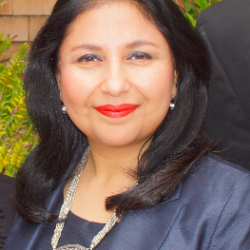
Ananya Roy is Professor of Urban Planning and Social Welfare and inaugural Director of the Institute on Inequality and Democracy at UCLA Luskin. She holds The Meyer and Renee Luskin Chair in Inequality and Democracy. Ananya’s scholarship has focused on urban transformations in the global South, with particular attention to the making of “world-class” cities and the dispossessions and displacements that are thus wrought. Her books on this topic include City Requiem, Calcutta: Gender and the Politics of Poverty and Worlding Cities: Asian Experiments and the Art of Being Global, the latter co-edited with Aihwa Ong. A separate line of inquiry has been concerned with new regimes of international development, especially those that seek to convert poverty into entrepreneurial capitalism and the economies of the poor into new markets for global finance. Her authored book on this subject, Poverty Capital: Microfinance and the Making of Development, received the 2011 Paul Davidoff award, which recognizes urban planning scholarship that advances social justice. A resident of Oakland, CA, for many years, her recent research uncovers how the U.S. “war on poverty” shaped the city and how it became the terrain of militant politics as well as experiments with community development. This work appears in her new book, Territories of Poverty: Rethinking North and South, co-edited with Emma Shaw Crane. Ananya’s ongoing research examines what she calls the “urban land question”, in India, as well as in globally interconnected nodes across North and South. Her emphasis is on how poor people’s movements challenge evictions and foreclosures, thereby creating political openings for new legal and policy frameworks as well as for rethinking the liberal foundations of property and personhood.